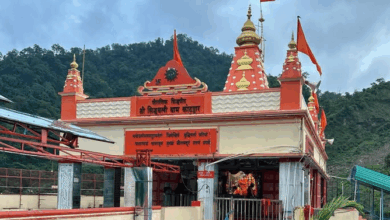State-Wide Raids on Liquor Shops Ordered by CM Dhami A Comprehensive Crackdown on Overpricing and Smuggling
In a sweeping and assertive move aimed at tackling persistent issues of overpricing and illegal liquor smuggling, Chief Minister Pushkar Singh Dhami has ordered a large-scale operation across the state. The directive has led to a series of coordinated raids conducted by the administration and excise department, targeting more than 100 liquor shops spread across multiple districts.
The Rationale Behind the Raids
The decision to launch this extensive crackdown comes after a series of mounting complaints about the unethical practices prevalent within the state’s liquor retail sector. Reports of overpricing—where customers are charged exorbitant rates for liquor—have been a significant concern for CM Dhami. Additionally, there have been persistent issues with the smuggling of liquor, which not only undermines legal trade but also poses serious health risks to consumers.
Chief Minister Dhami, known for his proactive stance on governance and public welfare, has taken a strong position against these malpractices. The raids are part of a broader strategy to restore transparency and integrity within the liquor distribution network and to ensure that consumers are not exploited.
Details of the Operation
On Tuesday, the administration and excise department embarked on an operation that covered a wide array of districts including Pithoragarh, Almora, Nainital, Bageshwar, Udham Singh Nagar, Champawat, Haridwar, Dehradun, Tehri, Uttarkashi, Chamoli, Rudraprayag, and Pauri Garhwal. These areas were identified based on the volume of complaints and reports of irregularities received by the state authorities.
The operation is being carried out in a meticulous manner. Teams from both the administration and excise department are working in tandem to conduct inspections of liquor shops. They are examining various aspects of shop operations, including stock register maintenance and pricing practices. This thorough approach is aimed at uncovering any discrepancies or violations that might indicate illegal activities or unfair pricing.
Key Focus Areas of the Raids
- Stock Register Maintenance: One of the critical areas of focus during these raids is the maintenance of stock registers. Liquor shop operators are required to keep detailed records of their stock, including the quantity of liquor received, sold, and remaining. These records are crucial for ensuring transparency and for tracking any irregularities in the inventory.
- Pricing Practices: Complaints about overpricing have been a central concern. The inspection teams are scrutinizing the pricing of liquor to ensure that it aligns with the government-set guidelines and does not exceed the permissible limits. Any evidence of overcharging will result in immediate action against the offending shops.
- Compliance with Legal Standards: The raids are also aimed at ensuring that liquor shops are operating within the legal framework established by the state. This includes adherence to licensing requirements and other regulatory norms. Non-compliance in these areas could lead to severe penalties, including the sealing of the shop.
The Impact on Liquor Shop Operators
The sudden nature of these raids has created a climate of apprehension among liquor shop operators. Many have reported feeling blindsided by the operation, which they claim has disrupted their daily business activities. The raids have led to increased scrutiny and, in some cases, have resulted in temporary closures of shops while the inspection is underway.
While some operators have expressed frustration, others have welcomed the action as a necessary step towards addressing longstanding issues within the industry. There is a general consensus that regulatory oversight is crucial for maintaining fair practices and ensuring consumer protection.
Government’s Stance and Future Actions
CM Dhami’s government has taken a firm stance on the issues of overpricing and smuggling, indicating that the current raids are just the beginning of a more extensive and ongoing effort. The Chief Minister has instructed that these raids be conducted periodically to ensure sustained compliance and to deter potential offenders from engaging in illicit practices.
The government’s approach reflects a broader commitment to improving governance and enhancing public trust. By taking decisive action against malpractices in the liquor industry, CM Dhami aims to set a precedent for other sectors and reinforce the importance of ethical business practices.
In addition to immediate actions, the government is expected to review and potentially revise existing regulations related to liquor distribution and sales. This could involve implementing stricter guidelines, improving monitoring mechanisms, and enhancing penalties for violations.
Public and Industry Reactions
The public reaction to the raids has been largely supportive, with many viewing the operation as a necessary intervention to address consumer grievances and curb illegal activities. Consumers who have been affected by overpricing or who have witnessed the detrimental effects of smuggling are optimistic that these measures will lead to better regulation and fairness in the market.
On the other hand, the liquor industry has expressed mixed feelings. While there is an acknowledgment of the need for regulation, some industry stakeholders have raised concerns about the potential impact of the raids on legitimate businesses. They argue that while addressing illegal activities is crucial, it is also important to ensure that well-meaning operators are not unduly penalized.
Looking Ahead
As the raids continue and investigations unfold, the state government is likely to provide further updates and insights into the findings and subsequent actions. The success of this operation will be closely monitored, and its outcomes will play a significant role in shaping future policy decisions and enforcement strategies.
In conclusion, CM Dhami’s decisive action against overpricing and smuggling in the liquor industry marks a significant step towards ensuring fairness and transparency. The ongoing raids are not just a reaction to current issues but also a proactive measure to prevent future malpractices and to uphold the integrity of the state’s regulatory framework. As the situation develops, stakeholders from all sectors will be watching closely to gauge the effectiveness of these interventions and their impact on the broader landscape of business practices in the state.






